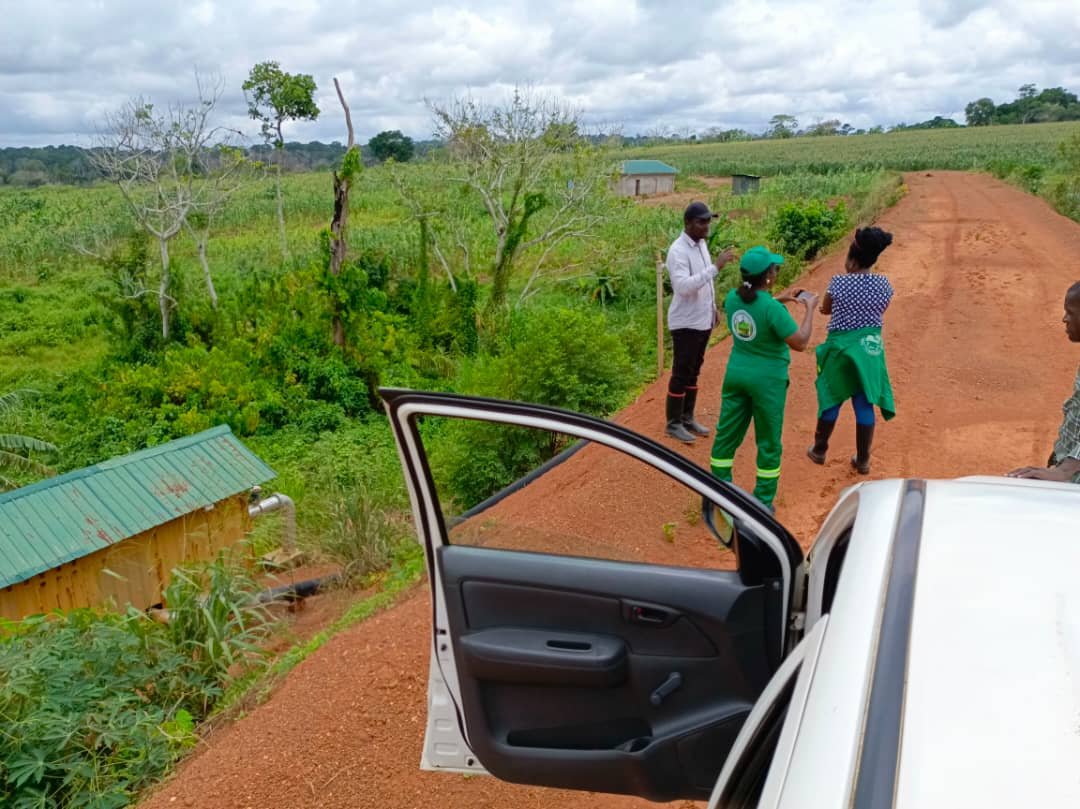Harnessing African Microbial Diversity to mitigate Green House Gas emissions in maize production.
African, microbial biodiversity, GHG mitigation, maize production
3 years
Technology Readiness Level (TRL) 4
Introduction
The project aims to assess the use of plant growth promoting bacteria (PGPB) as a potential “bio-solution” to increase crop productivity in maize without increasing Green House Gas (GHG) emissions.
Globally, farmers are under pressure to increase crop productivity to meet the increase in food demand and to manage the negative impact of climate change on crop performance. Intensification drives farmers’ reliance on inorganic fertilizer which results in increased emissions of GHG such as nitrous oxide (N2O), to such an extent that agriculture is recognised as one of the main sources of Green House Gas (GHG) emissions.
The project will assess the impact of selected PGPB, isolated from natural environments in South African and Cameroon, on crop productivity and GHG emissions, in an effort to negate the negative effects of chemical fertilizers in maize production.
Background
Currently in Sub-Saharan Africa (SSA), rapid population growth and decreased availability of arable land requires increased productivity per area to ensure food security. Intensification drives farmers’ reliance on inorganic fertilizer which results in increased emissions of GHG such as nitrous oxide (N2O). Moreover, climate change is predicted to lead to extended periods of drought in the region, which will ultimately require the cultivation of crops in unfavourable areas further increasing the need for chemical fertilizers to meet food demand. Although the African continent is the most affected, an estimated 2.3 billion people are affected by drought globally. There is, therefore, a need to identify alternative approaches that are affordable, sustainable, and climate neutral/have improved GHG emission profiles to enhance the growth of commodity crops.
Main project activities
Bacteria with bioactivities associated with plant growth promotion e.g. nitrogen fixation, phosphate solubilisation, biosurfactant and siderophore production will be formulated into bacterial inoculums.
The inoculums will be tested in maize cultivated under normal and drought conditions.
GHG (N2O and CH4) emissions will be monitored to investigate whether applying these inoculums will enhance fertiliser uptake and reduce GHG emissions, without negatively affecting crop productivity.
In addition, the mechanisms of the plant-microbe interactions will be studied using molecular techniques such as genome sequence analysis and gene expression to confirm the bacteria’s role in the observed phenotype.
Bacterial strains with specific bioactives will be selected for the isolation and characterisation of selected bioactives. The most promising and novel bioactives will be made available for product development and commercialisation.
Expected social impact
Identify beneficiaries and describe positive changes, such as improved quality of life, health, or economic opportunities. Highlight social inclusion, stakeholder involvement, sustainability., etc.
The nature of the project and the project activities will impact on several of the global Sustainable Development Goals. This includes the goals of protecting the planet’s natural resources and climate for future generations, the promotion of food security and sustainable economic growth, as well as providing opportunities for scientific capacity development and lifelong learning opportunities, in particular in farming communities, and amongst early career researchers and entrepreneurs. The results from the study will inform decision- and policy makers on whether the use of PGPB is a feasible strategy to help achieve climate neutrality in global agri-food systems.
Implementation and plans to reach target groups
Target groups are considered as anyone who will be impacted by the project or has an interest in the outcomes of the project. Special emphasis will be on informing the general public, in this case the farming communities, about the nature of the project, the opportunities that it offers and how it aims to impact on the development of more sustainable and resilient food and farming practices.
A second emphasis will be on using the project to create a larger interest in agri-food as a career option, thereby impacting on human capital development and the building of research capacity to advance applied and innovative research to the benefit of the different partner countries.
The third emphasis will be on the scientific contributions of the project to this research area and the communication of the research within the international scientific community.
To ensure that the communication and dissemination of information to all target groups are effective, the project will employ an integrated, multi-channel approach. This will include various kinds of formal engagements, the use of printed media, video and/or interviews, info packs, brochures, posters, as well as scientific publications in international peer-reviewed journals.
Resources for professional assistance with communication activities such as drafting of press releases; maintenance of the websites, banner, brochures, popular publications, etc. will be sourced from the partner’s institutional Media offices.
Partners of the project
-
Institute for Microbial Biotechnology and Metagenomics (IMBM), University of the Western Cape, South Africa
-
University of the Western Cape, South Africa - Dr Anita Burger and team
University of Buea, Cameroon - Prof Christopher Ngosong
Universidad de Granada, Spain - Prof Concepción Calvo
University of Trento, Italy - Prof Michele Perazzolli
Norwegian University of Life Sciences, Norway - Prof Peter Dörsch
-
National Research Foundation (NRF), South Africa
The Research Council of Norway (RCN), Norway
Ministry of Scientific Research and Innovation (MINRESI), Cameroon
Ministry of Agriculture, Food Sovereignty and Forestry (MASAF), Italy









